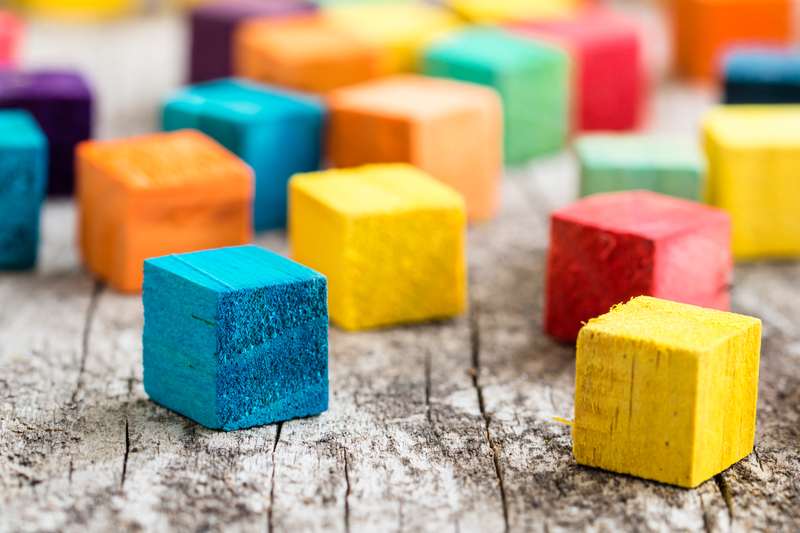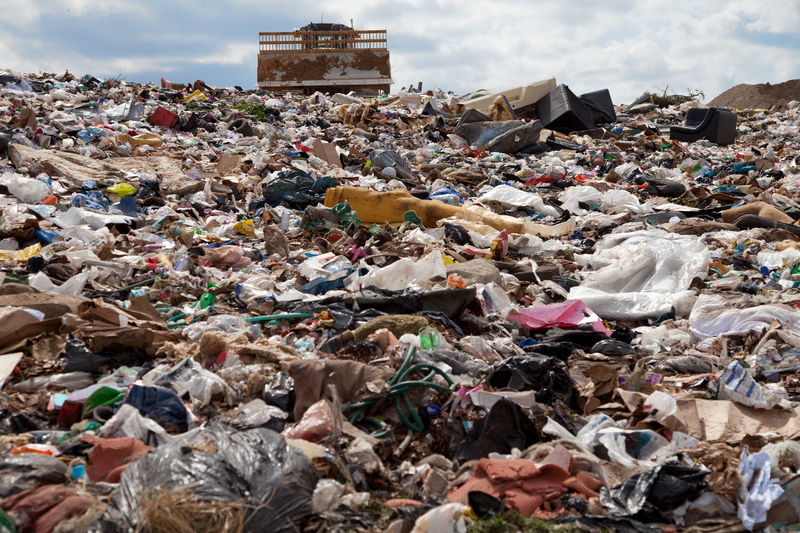Bypass These Plastics for a Greener Lifestyle: Your Comprehensive Guide
If you are striving for a more sustainable way of living, bypassing plastics is an essential first step. Plastic pollution has a significant negative impact on the environment, with billions of tons entering landfills, oceans, and ecosystems every year. By learning which plastics to avoid and how to replace them with greener alternatives, you can play a vital role in preserving the planet for future generations. In this comprehensive guide, you will find actionable tips and insights to help you bypass harmful plastics and enjoy a more eco-friendly lifestyle.

Why Should You Avoid Plastics?
Plastics have become a ubiquitous part of our modern lives. However, their convenience comes at a hidden cost to our health, wildlife, and environment. Here are some compelling reasons to bypass plastics for a greener lifestyle:
- Environmental Impact: Most plastics do not biodegrade. Instead, they break into microplastics that contaminate water, air, and soil, affecting both humans and animals.
- Wildlife Threat: Animals often mistake discarded plastic for food, leading to injury or death. Marine life, in particular, is gravely affected by plastic pollution.
- Resource Consumption: The production of plastics requires enormous quantities of fossil fuels, contributing to greenhouse gas emissions and climate change.
- Health Risks: Many plastics leach harmful chemicals, such as BPA, phthalates, and dioxins, which can disrupt hormones and cause serious health problems.
Now that you understand why avoiding plastics is crucial, let's dive into which plastics you should bypass and how to replace them for a sustainable lifestyle.
Single-Use Plastics to Avoid for a Greener Life
Single-use plastics are items designed to be used once and then thrown away. These products are among the largest contributors to plastic pollution. Here are the main single-use plastics you should bypass for a green lifestyle:
Plastic Bags
Plastic bags are one of the most common pollutants found in the ocean and landfills. They can take up to 1,000 years to decompose. Instead, opt for:
- Reusable cloth bags made from organic cotton or jute
- Foldable shopping totes that easily fit in your pocket or purse
Plastic Water Bottles
Disposable water bottles are not only wasteful but also expensive over time. Only a small percentage of these are recycled. Make the switch to:
- Stainless steel or glass water bottles
- BPA-free reusable bottles
Plastic Straws and Stirrers
Plastic straws and stirrers end up in the ocean, harm marine animals, and are rarely recyclable. Greener alternatives include:
- Bamboo or metal straws
- Silicone reusable straws
- Wooden or metal stirrers
Plastic Cutlery and Plates
Throw-away cutlery and plates are convenient, but they contribute substantially to landfill waste. Instead, use:
- Compostable plates and cutlery (made from cornstarch, bamboo, or other plant-based material)
- Stainless steel or reusable cutlery sets
Food Packaging
Much of our food comes wrapped in single-use plastics. Reduce this waste by:
- Shopping at bulk stores and bringing your own containers
- Choosing products with minimal or plastic-free packaging
- Using beeswax wraps or silicone lids instead of plastic wrap
Plastics in Everyday Products: What to Avoid
Not all plastics are obvious. Many everyday items contain hidden plastics that are just as harmful. To avoid plastics in daily life, pay attention to the following:
Personal Care and Hygiene Products
- Shampoo and Conditioner Bottles: Try bar shampoos or refill stations.
- Toothbrushes: Switch to bamboo toothbrushes.
- Disposable Razors: Opt for metal safety razors with replaceable blades.
- Cotton Swabs: Choose versions with paper or bamboo sticks.
Household and Cleaning Products
- Liquid Detergents: Purchase detergent powders in cardboard boxes, or use refill stations.
- Sponges: Natural loofah or cellulose sponges replace synthetic options.
- Trash Bags: Compostable bags are better for the environment.
Clothing and Textiles
Many synthetic fibers are forms of plastic, such as polyester, acrylic, and nylon. These fabrics shed microplastics during washing, which eventually end up in waterways. Choose:
- Natural fibers like organic cotton, hemp, or linen
- Buy second-hand or upcycled clothing to reduce demand for new plastics
Plastics by Numbers: Which Plastics Should You Avoid?
Check the recycling number (inside the triangle symbol) found on most plastic products. Some numbers indicate lower risks, while others are highly problematic:
- #1 PET or PETE (Polyethylene Terephthalate): Used for water, soda bottles, and food containers. Often single-use; avoid if possible.
- #2 HDPE (High-Density Polyethylene): Milk jugs, detergents. Safer, but best to reduce usage.
- #3 PVC (Polyvinyl Chloride): Plumbing pipes, food wrap. Known for leaching chemicals--strongly avoid.
- #4 LDPE (Low-Density Polyethylene): Grocery bags, bread bags. Hard to recycle--better to bypass.
- #5 PP (Polypropylene): Yogurt containers, straws. Somewhat safer, but not widely recyclable.
- #6 PS (Polystyrene/Styrofoam): Takeout containers, cups. Highly polluting, often banned--steer clear.
- #7 Other: Includes polycarbonate and BPA-containing plastics. Avoid for health reasons.
In general, bypass plastics labeled 3, 6, and 7 for a truly green lifestyle.
Tips To Bypass Plastics for a Greener Lifestyle
Adopting a plastic-free life might seem challenging at first, but these practical tips can make it much easier:
- Start small: Replace one plastic item at a time, such as your water bottle or grocery bags.
- Plan ahead: Always carry reusable bags, food containers, and a cup or bottle when going out.
- Shop local and in bulk: Farmers' markets and bulk stores offer options to avoid plastic packaging.
- Support plastic-free brands: Purchase from companies with sustainable packaging and ethical standards.
- DIY solutions: Make your own cleaning products, beauty care, and snacks to cut plastic use.
- Refuse single-use plastics: Clearly say "no" to plastic straws, cutlery, and bags when offered.
- Educate others: Share your journey to encourage friends, family, and colleagues.
Alternative Materials: What to Use Instead of Plastic
Transitioning away from plastics is easier when you know what alternatives to choose. Here are the top eco-friendly materials:
- Glass: Non-toxic, durable, and 100% recyclable. Ideal for bottles, jars, and food storage.
- Stainless steel: Perfect for water bottles, lunchboxes, and straws--long-lasting and reusable.
- Bamboo: Lightweight and renewable. Excellent for dishes, utensils, and toothbrushes.
- Cotton: Organic cotton bags and cloths are natural, washable, and biodegradable.
- Silicone: Food-grade silicone is heat-resistant and great for lids, bakeware, and storage bags.
- Paper and Cardboard: Compostable and recyclable packaging for food and household items.
- Plant-based bioplastics: Look for certified compostable products for disposable needs.
Myths and Misconceptions About Avoiding Plastics
It's important to address some common myths that discourage people from living a greener lifestyle by bypassing plastics:
- Myth 1: "Going plastic-free is too expensive." While some sustainable products have a higher upfront cost, they last longer and save money over time.
- Myth 2: "One person can't make a difference." Individual action matters--when millions join, the impact multiplies!
- Myth 3: "All plastics are recyclable." In reality, only a fraction are recycled due to contamination, lack of facilities, or economics.
Bypassing Plastics at Different Life Stages
For Families and Children
- Choose non-plastic toys made from wood, cloth, or recycled materials.
- Use cloth diapers and wipes instead of disposable options.
- Pack lunches in stainless steel or silicone containers.
For Students
- Carry a reusable water bottle and lunch container to school.
- Opt for notebooks made from recycled paper.
- Say no to plastic-wrapped school snacks.
For Businesses
- Switch to paperless offices.
- Implement reusable utensil policies.
- Choose suppliers who prioritize plastic-free shipping materials.
For Seniors
- Use glass or ceramic for food storage.
- Shop at local markets emphasizing fresh, unpackaged food.
- Encourage community groups to adopt greener practices.
Challenges in Bypassing Plastics and How to Overcome Them
Transitioning to a plastic-free lifestyle can have hurdles, but you can overcome them with these tips:
- Limited access to alternatives: Online shops and eco-friendly stores are expanding everywhere; join online communities for recommendations.
- Social pressures: Be an advocate by leading through example and educating your peers.
- Product availability: Request plastic-free options at stores and support businesses that cater to green consumers.
- Inconvenience: Gradually build new habits--consistency makes change comfortable and rewarding.

The Global Movement to Bypass Plastics
Governments, brands, and individuals worldwide are embracing a plastic-free lifestyle. From national bans on single-use plastics to zero-waste stores, change is happening at every level. Some inspiring global efforts include:
- European Union: Ban on single-use cutlery, plates, straws, and polystyrene food containers.
- India: Nationwide ban on a wide range of single-use plastics.
- Corporate Initiatives: Major airlines, hotels, and restaurants are phasing out plastics in favor of greener options.
Joining this movement not only reduces your plastic footprint but also encourages broader social and corporate responsibility.
Conclusion: Take Action Today for a Plastic-Free, Greener Tomorrow
Living a greener life is within your reach when you pay attention to the plastics you use and make conscious choices to bypass them. Whether you start with small daily swaps or commit to large-scale changes in shopping and consumption, every effort counts. Remember, bypassing plastics is not about perfection--it's about progress and creating positive habits that benefit your health and the planet.
Ready to bypass plastics for a greener lifestyle? Begin your journey today and inspire others along the way. Together, we can build a sustainable, plastic-free future for all.
```